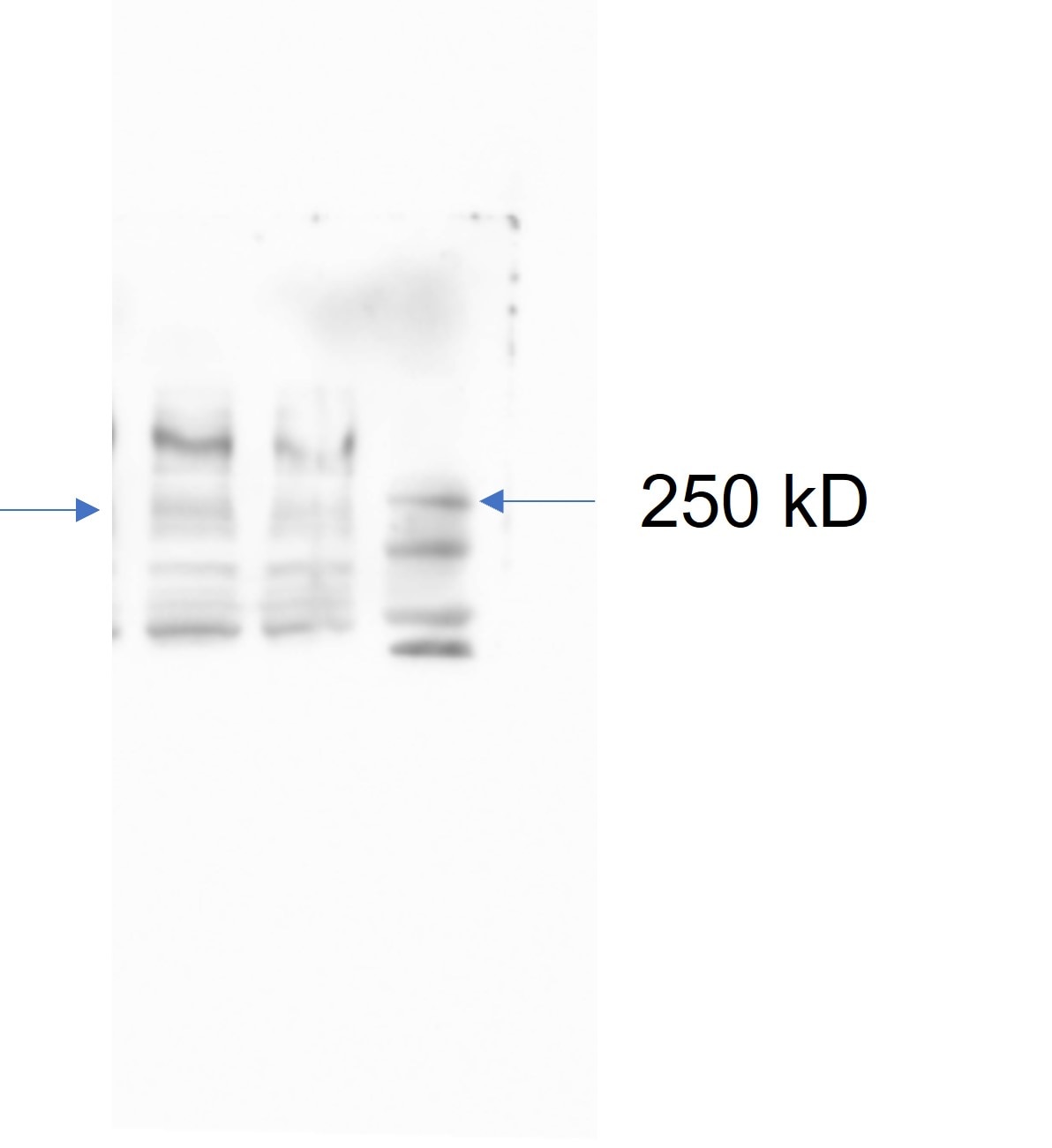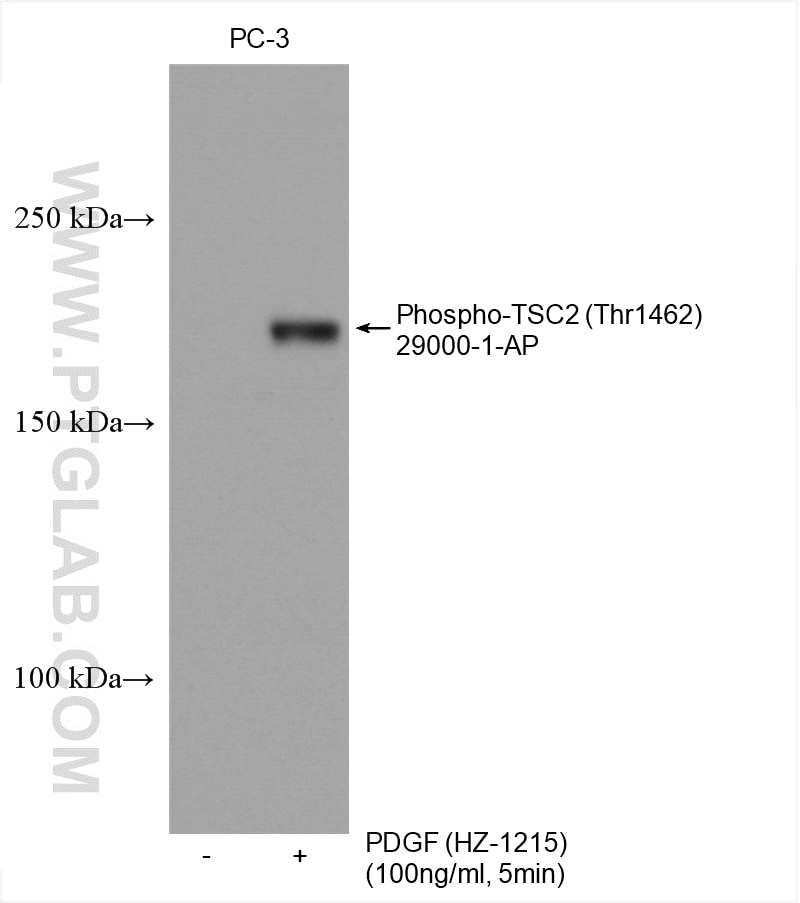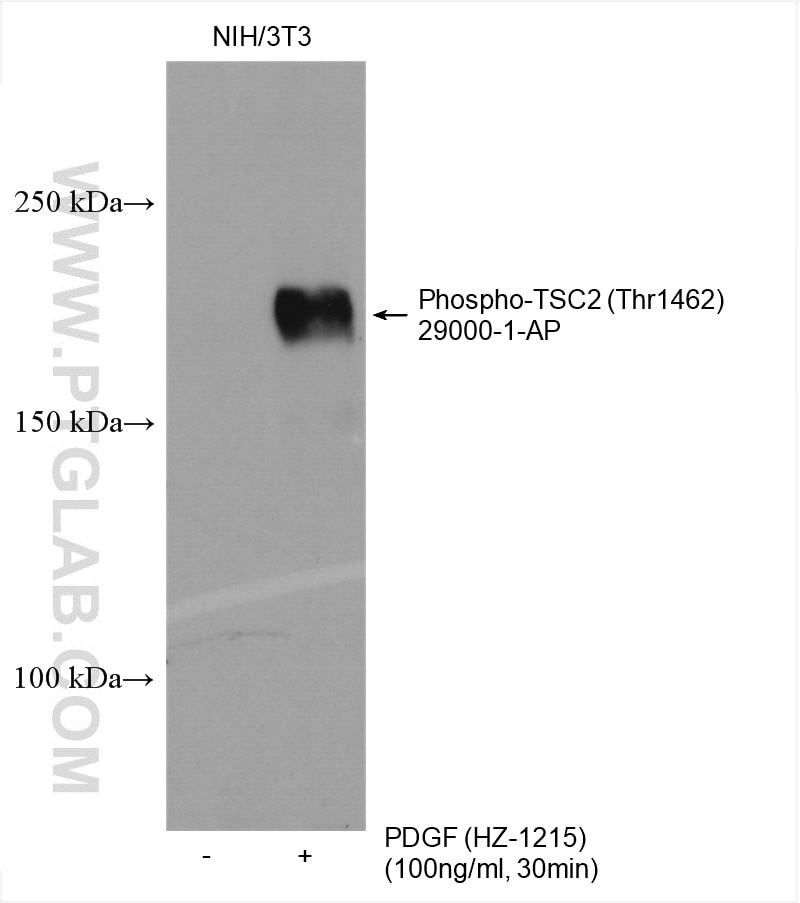Phospho-TSC2 (Thr1462) Polyklonaler Antikörper
Phospho-TSC2 (Thr1462) Polyklonal Antikörper für WB, ELISA
Wirt / Isotyp
Kaninchen / IgG
Getestete Reaktivität
human, Maus
Anwendung
WB, ELISA
Konjugation
Unkonjugiert
Kat-Nr. : 29000-1-AP
Synonyme
Geprüfte Anwendungen
| Erfolgreiche Detektion in WB | Mit PDGF behandelte PC-3-Zellen, Mit PDGF behandelte NIH/3T3-Zellen |
Empfohlene Verdünnung
| Anwendung | Verdünnung |
|---|---|
| Western Blot (WB) | WB : 1:500-1:2000 |
| It is recommended that this reagent should be titrated in each testing system to obtain optimal results. | |
| Sample-dependent, check data in validation data gallery | |
Veröffentlichte Anwendungen
| WB | See 1 publications below |
Produktinformation
29000-1-AP bindet in WB, ELISA Phospho-TSC2 (Thr1462) und zeigt Reaktivität mit human, Maus
| Getestete Reaktivität | human, Maus |
| In Publikationen genannte Reaktivität | human |
| Wirt / Isotyp | Kaninchen / IgG |
| Klonalität | Polyklonal |
| Typ | Antikörper |
| Immunogen | Peptid |
| Vollständiger Name | tuberous sclerosis 2 |
| Berechnetes Molekulargewicht | 1807 aa, 201 kDa |
| Beobachtetes Molekulargewicht | 200 kDa |
| GenBank-Zugangsnummer | BC150300 |
| Gene symbol | TSC2 |
| Gene ID (NCBI) | 7249 |
| Konjugation | Unkonjugiert |
| Form | Liquid |
| Reinigungsmethode | Antigen-Affinitätsreinigung |
| Lagerungspuffer | PBS with 0.02% sodium azide, 50% glycerol, and 0.05% BSA |
| Lagerungsbedingungen | Bei -20℃ lagern. Aliquotieren ist bei -20oC Lagerung nicht notwendig. 20ul Größen enthalten 0,1% BSA. |
Hintergrundinformationen
TSC2, also named as Tuberin, plays an essential role in the cellular energy response pathway. TSC2 forms a physical and functional complex with TSC1 that can inhibit the nutrient-mediated or growth factor-stimulated phosphorylation of S6K1 and EIF4EBP1 by negatively regulating mTORC1 signaling. It has been reported that TSC2 can be phosphorylated at Thr1462 by Akt/PKB involved in stimulating cell growth and is activated by insulin. (PMID: 14651849, 12172553)
Protokolle
| PRODUKTSPEZIFISCHE PROTOKOLLE | |
|---|---|
| WB protocol for Phospho-TSC2 (Thr1462) antibody 29000-1-AP | Protokoll herunterladen |
| STANDARD-PROTOKOLLE | |
|---|---|
| Klicken Sie hier, um unsere Standardprotokolle anzuzeigen |
Rezensionen
The reviews below have been submitted by verified Proteintech customers who received an incentive for providing their feedback.
FH Cali (Verified Customer) (01-21-2025) | It is okay to detect endogenous pT1462 TSC2 with the right molecular weight (about 200 kd), although some possible non-specific bands exist.
 |



